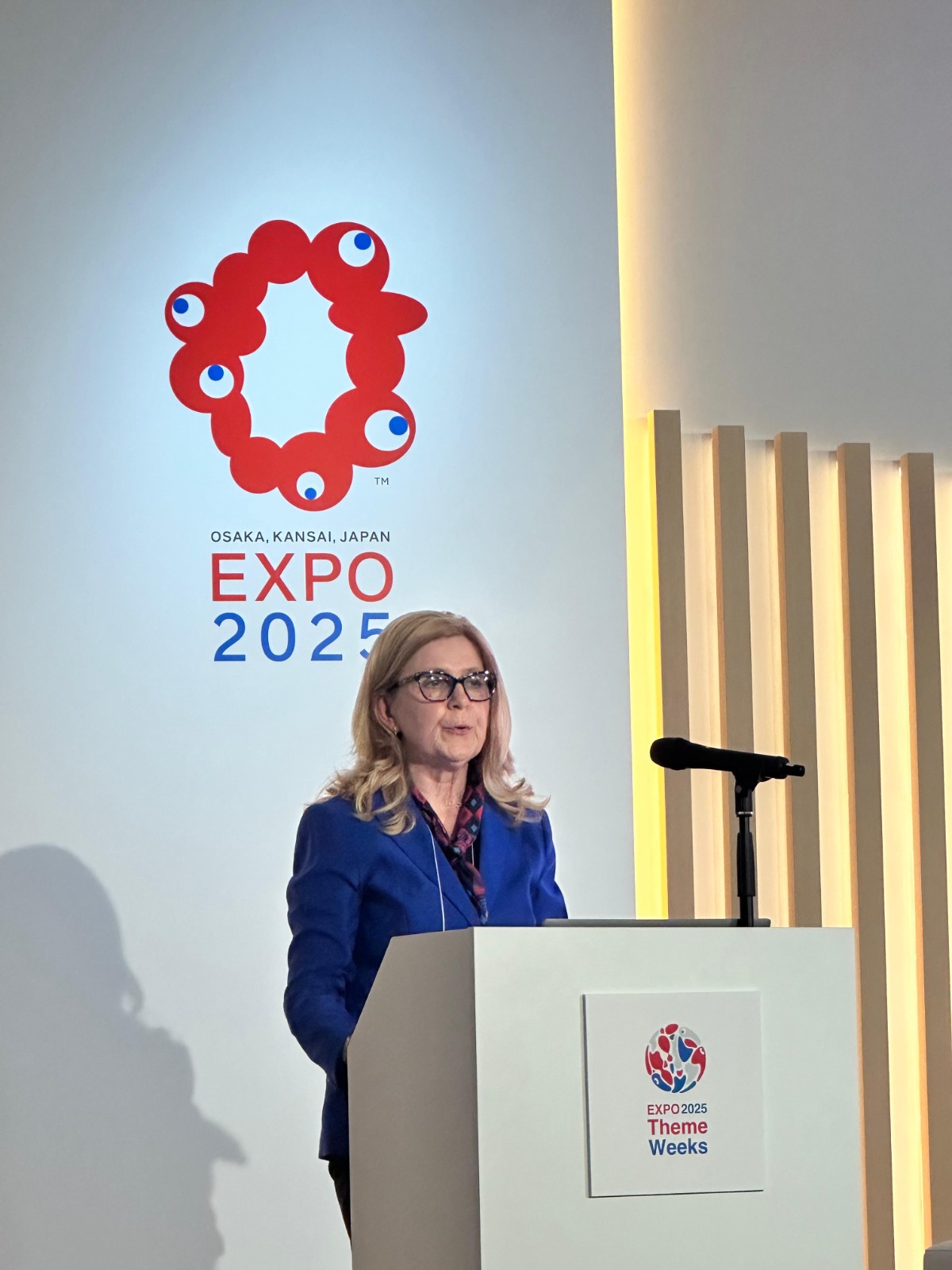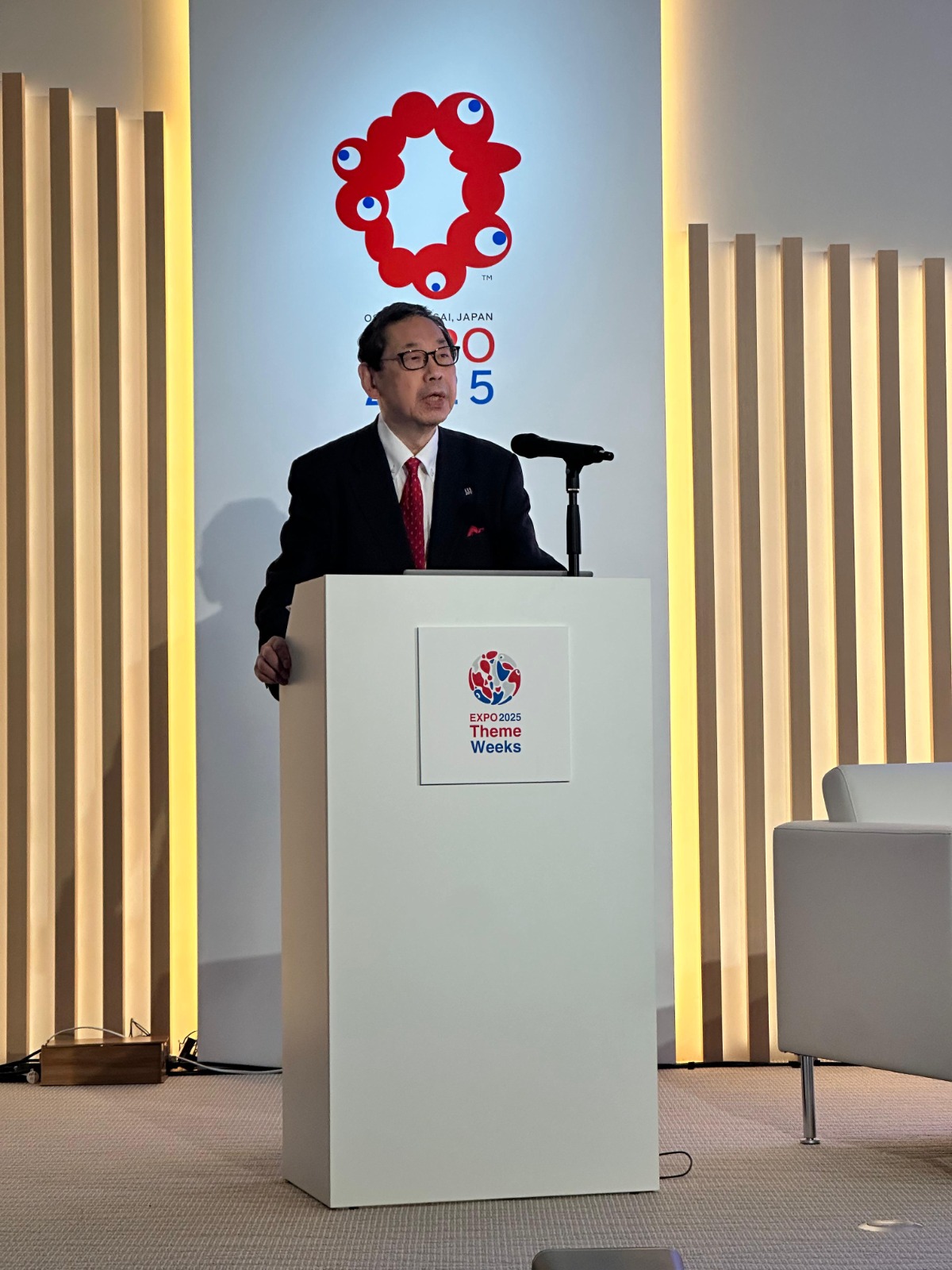At the EXPO 2025 Osaka World Expo on 26 May 2025, the Workshop Resilient Settlements: Prevention and Reconstruction - Lessons Learned from Japan and Croatia at EXPO 2025 Osaka was held as part of the thematic week Future of Community and Mobility, organized by the Institute for Spatial Development of the Ministry of Physical Planning, Construction, and State Assets. The Croatian delegation was led by State Secretary Dunja Magaš, who participated in the Croatian part of the official program of the EXPO 2025 Osaka.
State Secretary Magaš welcomed the attendees and emphasized in her introductory speech that resilience to change is an important aspect of building society and space: „The fact is that changes occur, caused by natural causes or human activity, and we are increasingly exposed to their negative consequences.“ After reviewing the course of reconstruction after the 2020 earthquake, she concluded her speech by thanking Japan, which helped Croatia with financial contributions, especially the Ambassador of Japan to Croatia, H.E. Mitsuhiro Wadi, as well as all Japanese experts who contributed to the reconstruction after the earthquake through the transfer of knowledge and experience.

The keynote lecture was given by Haruo Hayashi, Ph.D., Professor Emeritus at Kyoto University and former President of the National Research Institute for Earth Science and Disaster Resilience: „Life is a series of adversities, and overcoming them makes us stronger, with resilience being the ability to absorb, recover from and adapt to challenges needed at the individual, family, community and societal levels, with which we do not go back but prepare for the future." Through his introductory speech, he provided a comprehensive overview of recent disasters in Croatia and Japan with the main outcomes and lessons learned during reconstruction and recovery.

The first part of the conference, dedicated to national policies in building resilience, began with a presentation by Prof. Satoru Nishikawa, Ph.D., Lecturer at Tohoku University (IRIDe) and Senior Advisor for Disaster Risk Reduction and Reconstruction Policies at the Japan International Cooperation Agency (JICA). In his presentation, he gave an overview and shared the Japanese experience in reducing the consequences of earthquake disasters, applying the principle of „build-back-better“, which has proven to be an absolute necessity considering that Japan is exposed not only to earthquakes but also to tsunamis, volcanic eruptions, typhoons, strong monsoon storms, floods, landslides, and avalanches. He gave an overview of the improvement of regulations and technical regulations in use.
Head of the Sector at the Institute for Spatial Development of the Ministry of Physical Planning, Construction and State Assets Sunčana Habrun, presented the development of the Spatial Planning Information System, with a focus on the already developed and planned modules that serve the development of the spatial planning and construction system, as well as monitoring the state of the space. She emphasized the connection of this system with databases under the jurisdiction of other bodies that contribute to smarter and better quality solutions, announcing the further development of this system.
Aljoša Aaron Špaleta, Deputy Project Manager at the Ministry of Culture and Media, presented the project to develop 60 conservation databases that should be publicly available by the end of 2026, and are being developed within the framework of the NPOO. The mentioned conservation databases represent new-generation professional databases that ensure digital access to conservation databases in the areas covered by this project, and the main goals are to ensure standardization and improvement of the methodology of the cultural heritage preservation plan, integration with the spatial planning system, and strengthening and connecting the professional community.
In the second part of the conference, the focus was on the local approach to creating resilient communities.
Prof. Masahito Murata from the Kansai University of International Studies gave an overview of the experiences of several local communities after disasters: the Hanshin-Awaji earthquake (Kobe), the Hyogo reconstruction plan: „Creative Reconstruction - Hyogo Phoenix Plan“, where he gave an overview of the impact of the earthquake and the extent of the damage, the recovery process of the affected areas, lessons learned and emphasized the importance of transferring the acquired knowledge.
Deputy Mayor of Dubrovnik Jelka Tepšić gave an overview of the efforts of Dubrovnik as a city whose core is under UNESCO protection to contribute to the creation of a safer city with the identified main risks and an overview of key projects and investments. Next, the Director of the Institute for the Restoration of Dubrovnik presented a historical overview of the reconstruction approach and explained the methods of earthquake-resistant reconstruction of historical buildings with a focus on activities that contribute to improving resilience.
Ivana Katurić, Ph.D., Director of Urbanex d.o.o. explained the approach to the reconstruction of the city of Petrinja after the earthquake, through the prism of the implementation of a project funded by the Japanese government, and implemented through the cooperation program of Japan and the EBRD. The aim of the project was to analyze the situation in Petrinja after the earthquake, with an emphasis on urban renewal and rehabilitation of the necessary activities, which would help Petrinja in the implementation of the reconstruction.
The lecture was followed by a short discussion in which the lecturers answered a series of questions. The Workshop was moderated by Ingrid Gojević.
During the visit to EXPO 2025 Osaka, the delegation officially visited the pavilions of Austria, Bahrain, Brazil, Chile, the European Union, France Italy, Portugal, and Saudi Arabia.